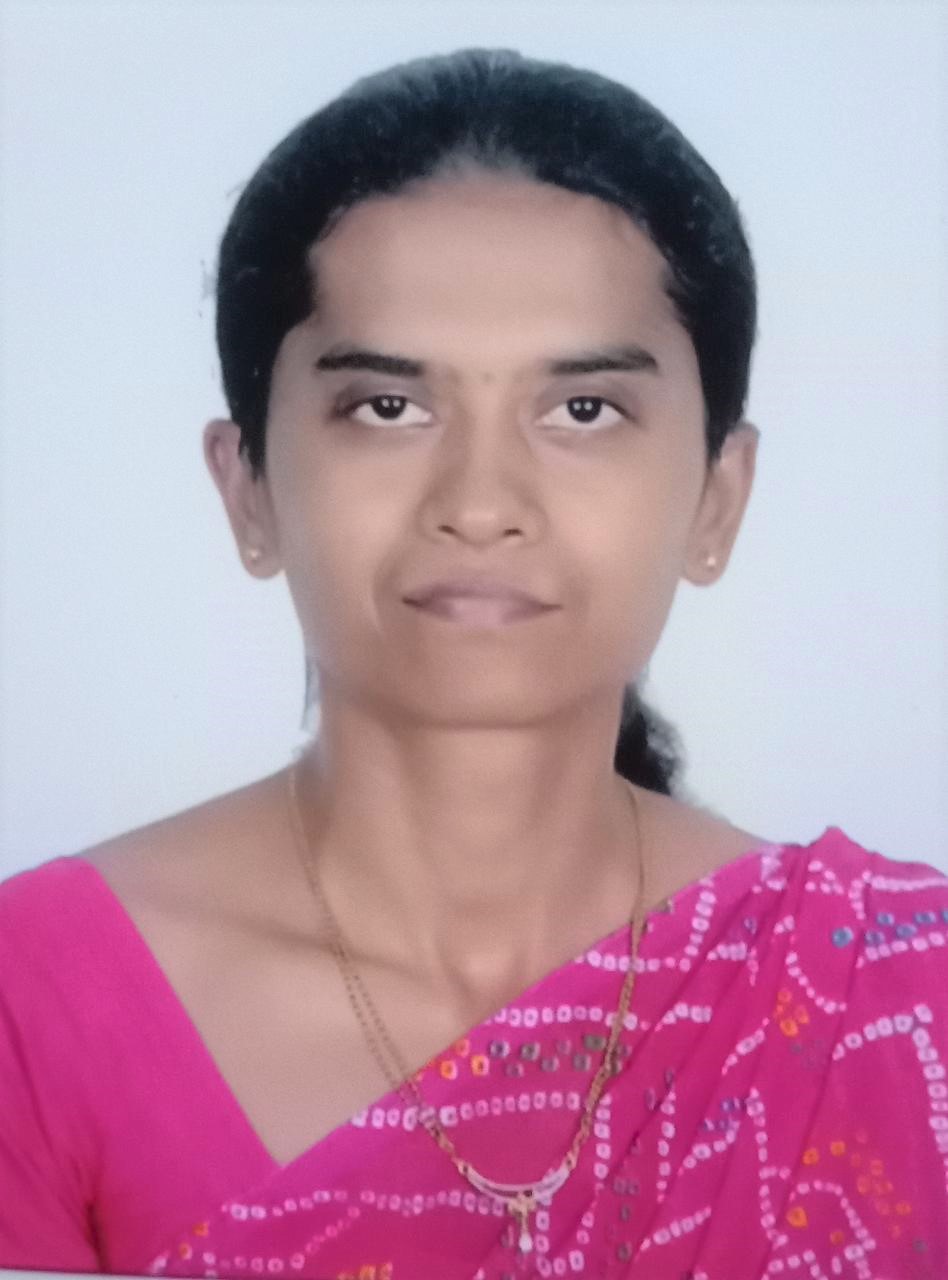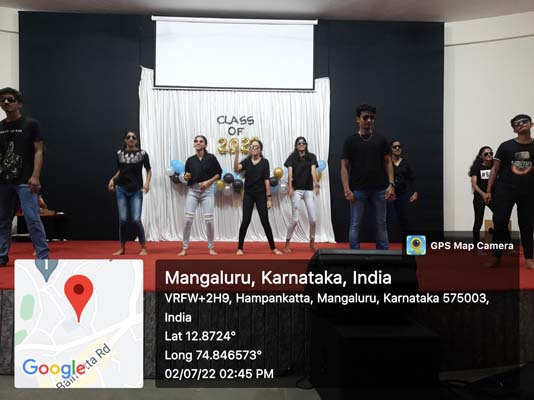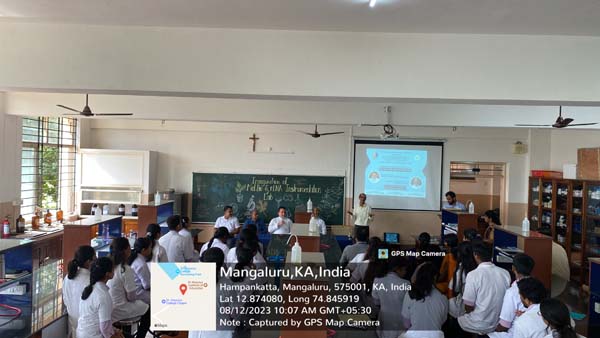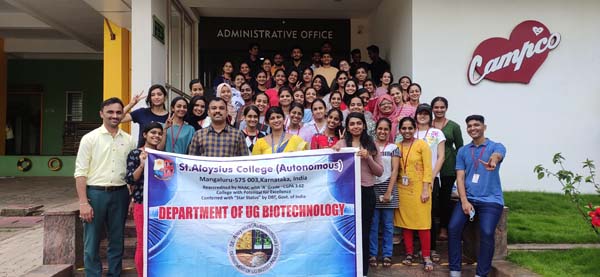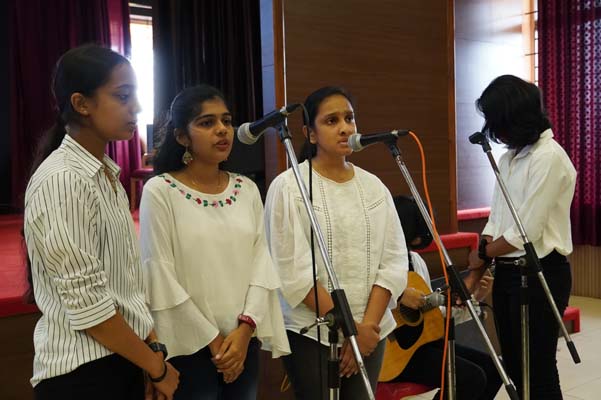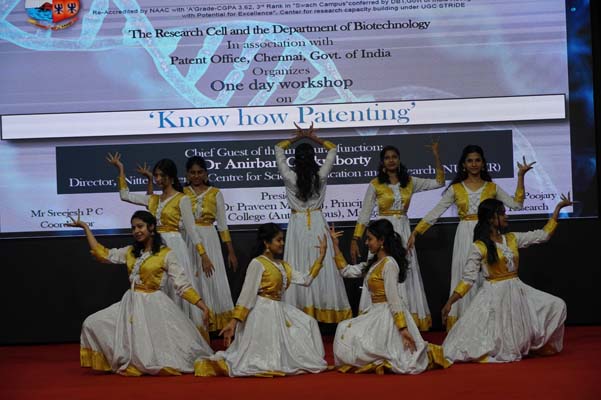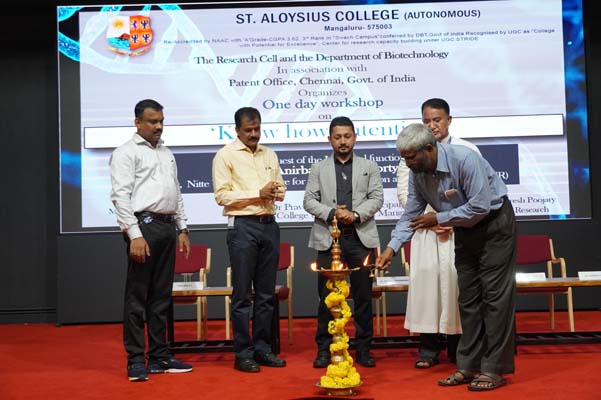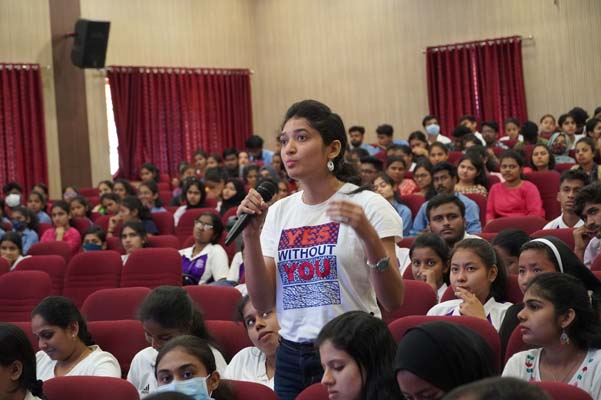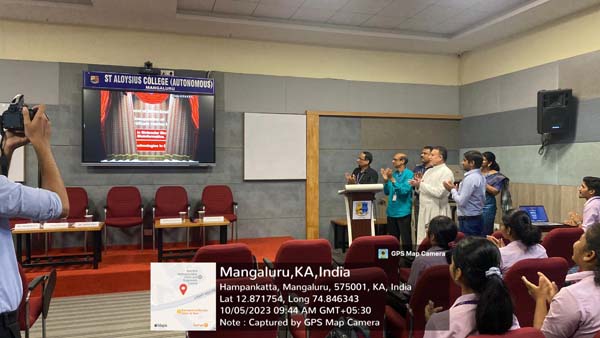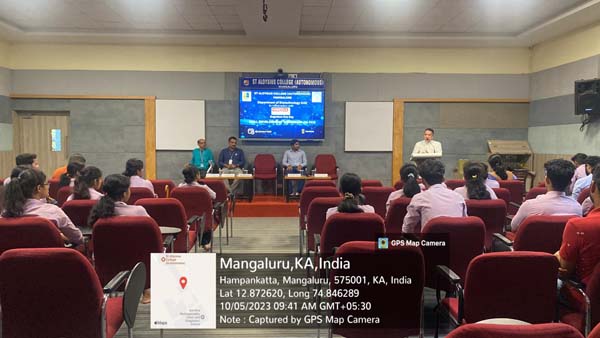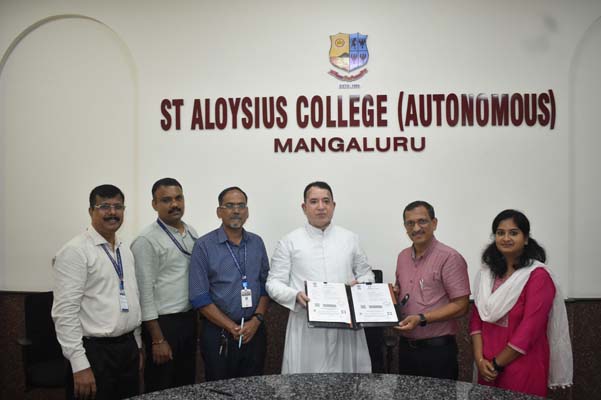Department of Biotechnology
St Aloysius College pioneered the introduction of the biotechnology course in coastal Karnataka in 2001 with the aim of nurturing young minds and creating a skilled workforce to meet the escalating demands of the sector. The department boasts an outstanding state-of-the-art laboratory and infrastructure, ensuring students receive both practical skills and theoretical knowledge. Our program is designed to provide the latest knowledge, skills, and core facilities in the field of Biotechnology. With a well-equipped spacious laboratory, we offer hands-on training on laboratory instruments, focusing on Microbial Biotechnology, Molecular Biology, and Tissue culture.
Our academic programs at the college have received commendable rankings from reputable external agencies, enjoying broad public acceptance. In the Department of Biotechnology, we continually endeavor to enhance our curriculum and offerings, ensuring that we stay at the forefront of contemporary trends in higher education.
Why pursue BSc in Biotechnology?
Biotechnology, as an interdisciplinary science, integrates concepts from various allied fields. Biotechnology is an emerging field that is rapidly expanding in India and around the world. Opting for Biotechnology as a course of study provides avenues for significant contributions to critical developmental sectors such as healthcare, agriculture, multi-omic technologies, and eco-friendly sustainable practices. This field not only allows you to apply your knowledge to varied domains like biochemistry, molecular biology, and genetics but also offers opportunities for specialization in cutting-edge areas such as nanotechnology, protein engineering, and bioinformatics. The BSc Biotechnology program equips students to enter diverse industries, including pharmaceuticals, medical research, diagnostics, bioprocess engineering, and other related sectors.
VISION:

MISSION:

Best Practices of the Department:
- The Department has launched a student-centric outreach program, "World of Biotechnology" (WOB). This initiative is designed to cultivate an early interest in biotechnology among pre-university students by offering them hands-on experience in a wide array of experiments and techniques. Trained BSc. Biotechnology students serves as resource persons for this initiative, reaching out to numerous rural and urban schools.
- The department's wall magazine, 'Syngene,' serves as a platform for showcasing scientific research articles, biotechnology-related news, information, career opportunities, and more.
- The department has been consistently publishing the newsletter 'Biobugle' to further disseminate valuable insights and updates within the biotechnology domain.
- The BioQuest program is a comprehensive training initiative designed to prepare students for competitive exams such as IIT-JAM, GATE, Combined Biotechnology Entrance Examination, and other comparable tests.
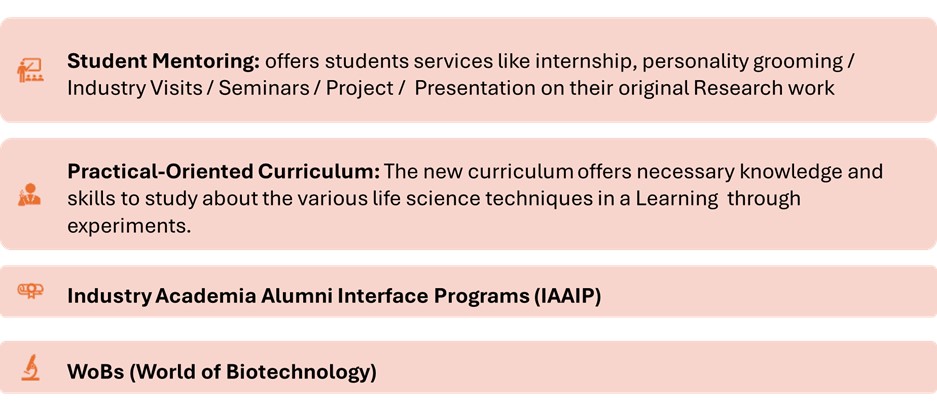
Prominent Alumni of the Department:
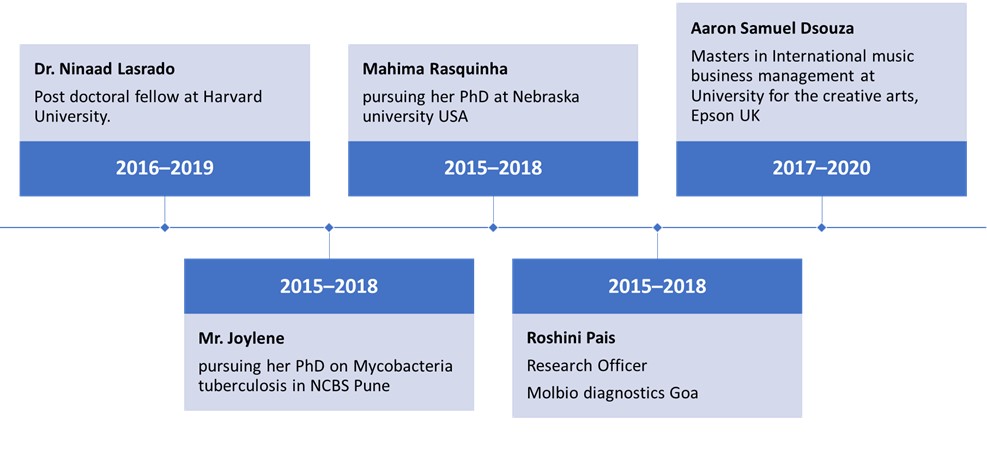
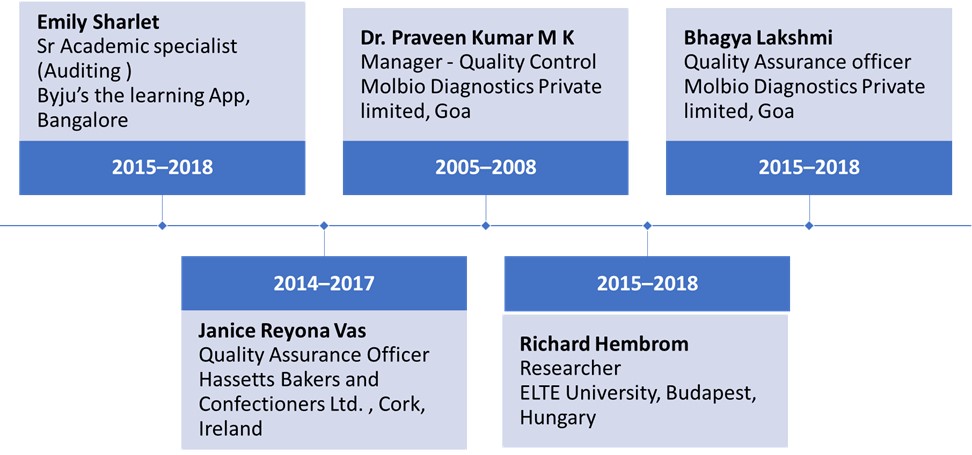
Glimpse of Student Achievements:
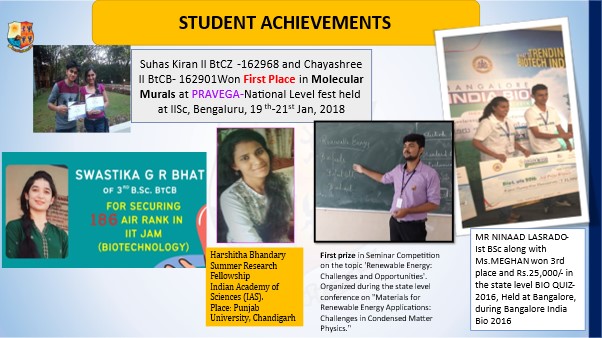
Under following Combinations, the Biotechnology program is offered at undergraduate level.
- Bachelor of Science (B.Sc) – Biotechnology, Botany.
- Bachelor of Science (B.Sc) – Biotechnology, Chemistry.
- Bachelor of Science (B.Sc) – Biotechnology, Zoology.
BSc Biotechnology - Overview
Bachelor / Hons. Program in biotechnology offers the synergism of multiplicity of scientific disciplines and technologies including cell biology, genetics, microbiology, biochemistry, molecular biology, Recombinant DNA technology, fermentation technology, enzyme technology, bioinformatics, and more recently a variety of omics. Our objective is to provide enhanced skills, knowledge, and research aptitude to carry out higher studies, entrepreneurship or research, and development and employment in the various health, research, and industrial areas. The new Learning Outcome- Based Curriculum (LOBC) in Biotechnology will help the teachers of the discipline to visualize the curriculum more specifically in terms of the learning outcomes expected from the students at the end of the instructional process.
Program Outcomes:
By the end of the program the students will be able to:
PO 1. Understand concepts of Biotechnology and demonstrate interdisciplinary skills acquired in cell biology, genetics, biochemistry, microbiology, and molecular biology.
PO 2. Apply the knowledge and skills gained in the fields of plant biotechnology, animal biotechnology and microbial technology in pharma, food, agriculture, beverages, herbal and nutraceutical industries.
PO 3. Critically analyze environmental issues and apply the biotechnology knowledge gained for conserving the environment and resolving environmental problems.
PO 4. Demonstrate comprehensive innovations and skills in the fields of biomolecules, molecular biology, enzyme technology, bioprocess engineering and genetic engineering of plants, microbes, and animals with respect to applications for human welfare.
PO 5. Apply the knowledge and skills of immunology, bioinformatics, computational modelling of proteins, drug design and simulations to test models and aid in drug discovery.
PO 6. Critically analyze, interpret data, and apply tools of bioinformatics and multi-omics in various sectors of biotechnology including health and food.
PO 7. Demonstrate communication skills, scientific writing, data collection and interpretation abilities in all the fields of biotechnology.
PO 8. Learn and practice professional skills in handling microbes, animals and plants and demonstrate the ability to identify ethical issues related to recombinant DNA technology, genetic engineering, animals handling, intellectual property rights, biosafety, and biohazards.
PO 9. Explore the biotechnological practices and demonstrate innovative thinking in addressing the current day and future challenges with respect to food, health, and environment.
PO 10. Demonstrate thorough knowledge and application of good laboratory and good manufacturing practices in biotech industries.
PO 11. Apply the molecular biology principles and techniques in forensic and clinical biotechnology.
PO 12. Demonstrate entrepreneurship abilities, innovative thinking, planning, and setting up of small-scale enterprises or CROs.
Eligibility & Admissions:
St Aloysius College admits candidates under Indian / Domestic (General) or Foreign / NRI category (International), on fulfilling the eligibility requirements. All admissions are on the basis of merit.
ELIGIBILITY
Applicants must have passed the PUC / 10+2 examination with Physics, Chemistry & Biology/ Mathematics /Biotechnology with at least 50% marks.
Admission Queries:
For all queries related to admissions please contact the following: Mobile/ WhatsApp: 9946546888, email: pc.sreejesh@staloysius.edu.in
Research and Consultancy:
From pioneering studies to impactful consultancy projects, we thrive on delivering solutions that make a real-world difference. Explore our endeavors that bridge academia and practical applications, contributing to advancements in science, technology, and beyond.
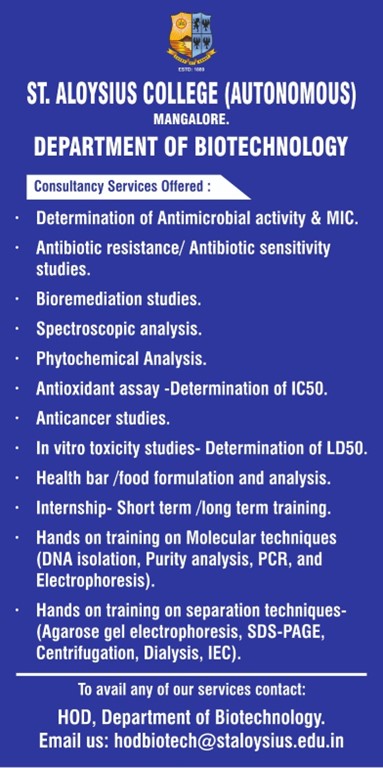
Areas of Research:
The Department has highly skilled faculty engaged in cutting-edge research across areas such as
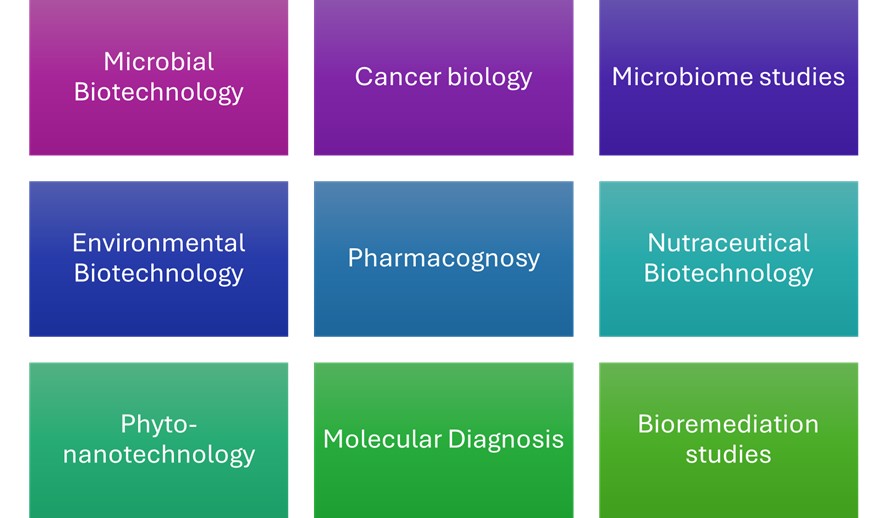
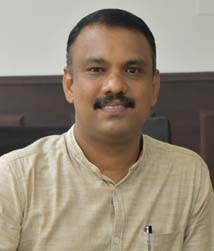

Associate Professor - Stage I
M.Sc. (Biotech), M.Sc. (Chemistry), MBA (Finance), M.A. (English), KSET, Ph.D.
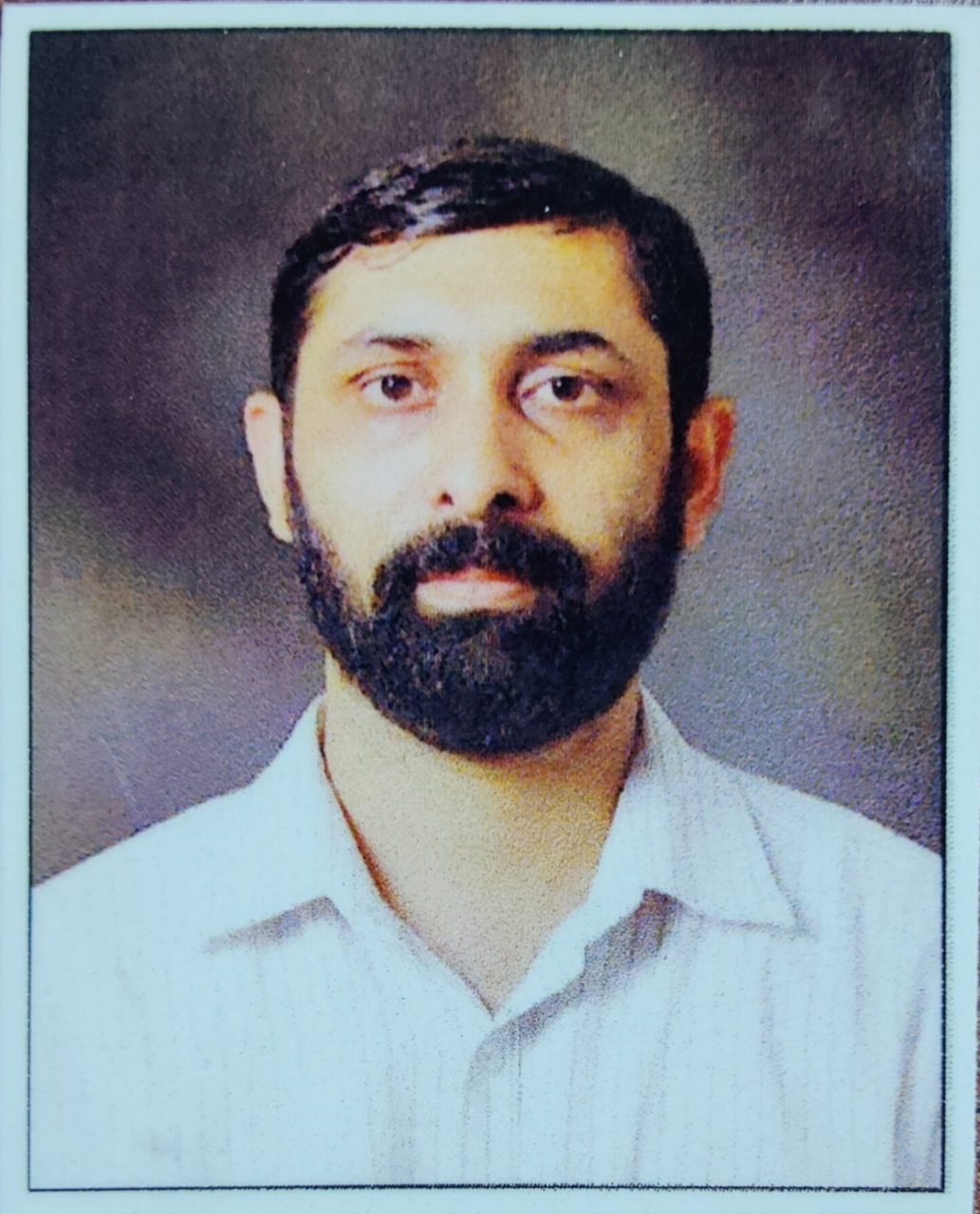
Assistant Professor
M.A (Philosophy), M.Sc (Microbiology), Bioinformatics (Diploma), KSET
